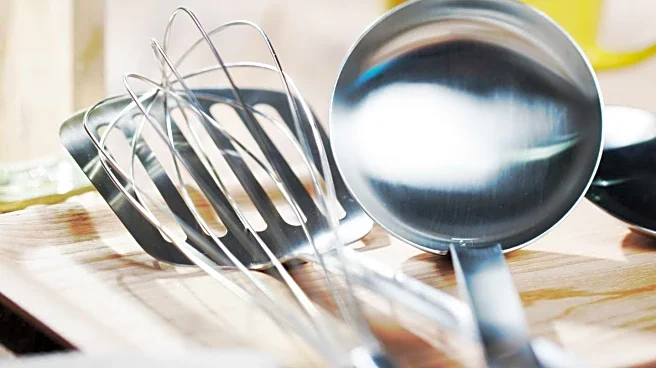What's Happening?
Kitchen experts are advising consumers to replace old plastic kitchen tools to prevent microplastics from contaminating food. Items such as plastic spatulas, cutting boards, and storage containers can
degrade over time, releasing microplastics and harboring bacteria. Experts recommend replacing these items regularly, opting for alternatives like glass storage containers and stainless steel utensils. The advice comes amid growing concerns about the health risks associated with microplastics, which can leach into food, especially when heated.
Why It's Important?
The presence of microplastics in food poses potential health risks, as these particles can accumulate in the body over time. This issue is significant for public health, prompting consumers to reconsider their kitchen habits and the materials they use. The advice to replace old kitchen tools highlights the need for safer, more sustainable practices in food preparation. This shift could lead to increased demand for eco-friendly kitchen products, impacting manufacturers and retailers in the industry.
What's Next?
Consumers are likely to seek out more durable and safer kitchen tools, potentially driving innovation in the kitchenware market. Manufacturers may respond by developing new products that minimize microplastic contamination and offer greater longevity. Additionally, increased awareness of microplastics could lead to more research into their health effects, influencing public policy and consumer safety standards.
Beyond the Headlines
The issue of microplastics extends beyond individual health concerns, touching on broader environmental and sustainability challenges. As consumers become more aware of the impact of plastic waste, there may be a cultural shift towards reducing plastic use and embracing more sustainable living practices. This could have long-term implications for environmental conservation efforts and the global push towards reducing plastic pollution.









